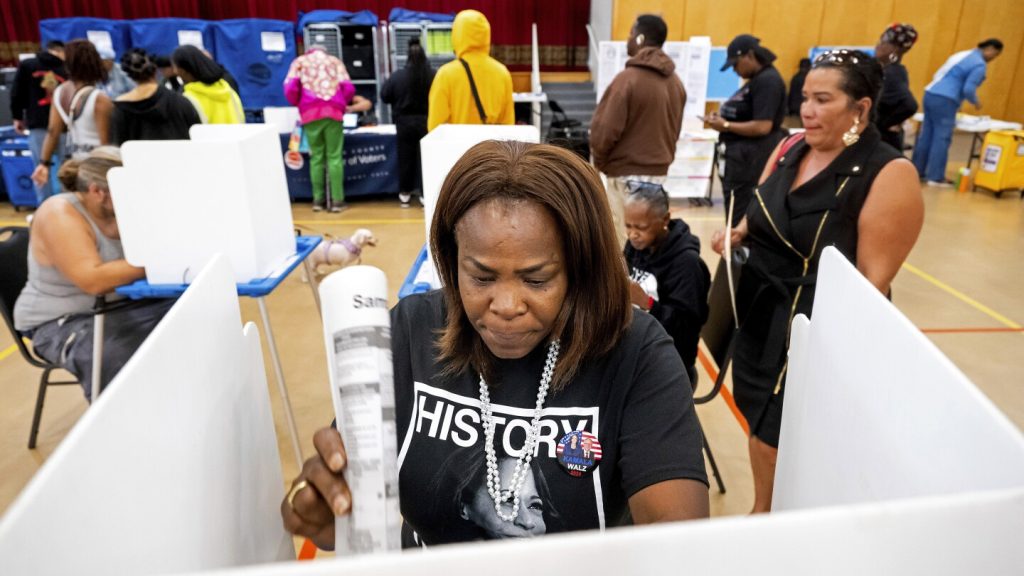In the recent election, voters had the opportunity to break the highest glass ceiling in American politics by electing Kamala Harris as the nation’s first female president. However, they instead chose to return Donald Trump to the White House, showcasing improved support among women for Trump. Some female voters expressed disappointment at the missed opportunity to elect a qualified woman to the presidency, highlighting a sense of incredulity among Americans at the decision.
Despite the historical significance of Harris’ campaign, she was unable to secure a win by expanding on President Joe Biden’s 2020 support among women. According to AP VoteCast, 53% of women supported Harris, compared to 46% for Trump, indicating a slightly narrower margin than Biden’s advantage in 2020. The prospect of electing the first female president was not a top motivator for voters, with only about 1 in 10 citing it as the single most important factor in their vote.
The gender gap in voting was evident, with women more likely than men to consider electing the first female president as a factor in their vote. Black women were particularly motivated by this potential, with about a third stating it was the most important factor. The intersection of Harris’ identity as a Black and South Asian woman likely influenced her defeat, as mentioned by a 27-year-old North Carolina attorney who constantly feels the need to prove herself as a Black woman.
Supporters of Trump, including some female voters, cited values and issues like the economy as the deciding factors in their vote, rather than gender. Trump’s hypermasculine campaign style and controversial rhetoric seemed less of a concern to some women, who praised his policies on the economy, immigration, and other issues. On the other hand, women who favored Harris feared a second Trump term would threaten their rights, especially in the wake of Supreme Court decisions that impacted abortion rights.
Harris campaigned energetically without emphasizing the gender issue, focusing instead on policy and values. For some, the news of Trump’s victory was met with sadness and concern about the future of democracy and women’s rights. Despite the setback, the election showcased progress in normalizing female candidates, with seven women from three political parties running for president in 2020. The public’s growing familiarity with female candidates like Harris signals a shift towards a more inclusive political landscape.
The election results prompted a range of emotions among women voters, leading to difficult conversations within families and relationships. Disagreements over politics were common, with some women finding it hard to discuss their differing views with their partners. However, the focus remained on moving forward and navigating the changing political landscape, with a sense of resilience and determination to overcome the challenges ahead.Overall, the election highlighted the complex interplay of gender, race, and policy in shaping voter decisions, underscoring the ongoing struggle for representation and equality in American politics.


